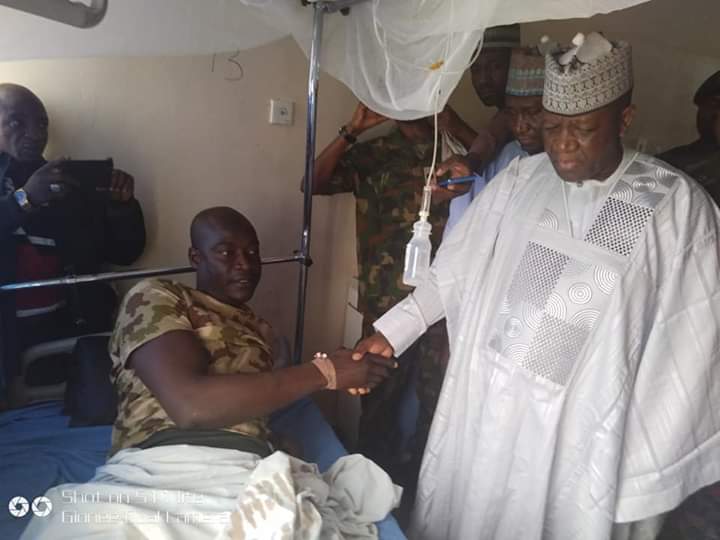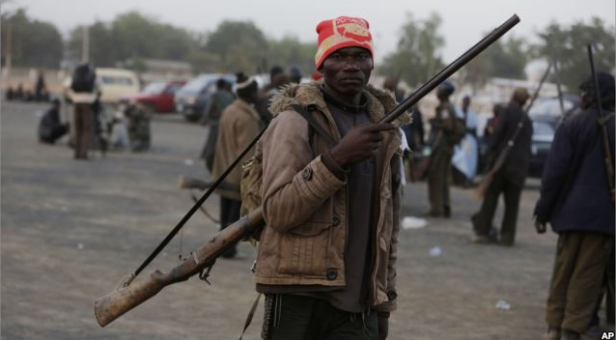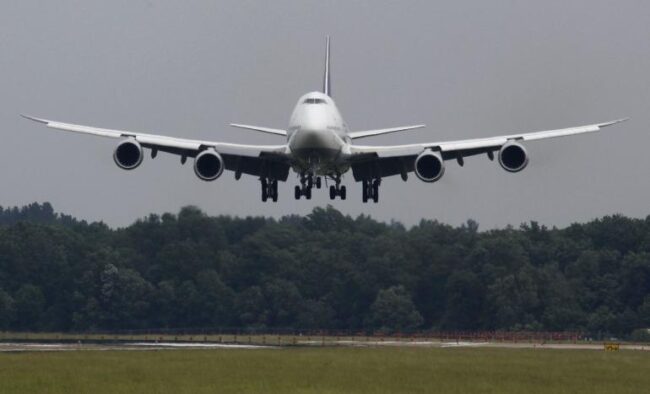A 2018 photo of immigrants in dire conditions in Libya before evacuation
The United Nations has released a new report detailing the experience of Nigerian migrants subjected to slavery in Libya.
Titled “Desperate and Dangerous: Report on the human rights situation of migrants and refugees in Libya”, the organisation said the report covered a period of 20 months.
It gave accounts of violations and abuses committed by state officials, armed groups, smugglers and traffickers against migrants and refugees.
Findings were reportedly based on first-hand accounts from Nigerian migrants in Libya, those who had returned to Nigeria, and those who managed to reach Italy.
Advertisement
According to the report, “Nigerian women and girls appear to be vulnerable to trafficking by multinational criminal networks in their countries of origin.
“They embark on their journeys believing office work awaits them in Europe but find themselves in so-called “connection houses” (brothels) in Libya.
“Countless migrants and refugees lost their lives during captivity by smugglers after being shot, tortured to death or simply left to die from starvation or medical neglect.
Advertisement
“Across Libya, unidentified bodies of migrants and refugees bearing gunshot wounds, torture marks and burns are frequently uncovered in rubbish bins, dry river beds, farms and the desert.”
The migrants were quoted as saying women and girls were compelled to engage in sexual acts against their will and were under the “absolute power and control of their captors”.
A 27-year-old Nigerian, held captive in Sabratah, a district in the country, between May and October 2017, described witnessing a migrant being shot by a “drunk guard for no apparent reason”, and another being shot point blank over a disagreement on a SIM card.
Speaking on sexual violence, a Nigerian woman who had returned home in December 2017, was quoted as saying: “To be sold and forced to have sex with Arab or African men either to pay for the journey or to extract your money is a common thing to happen to you as a woman or a girl, all over the journey from day one in the desert until you depart Libya.”
Advertisement
A woman from Nigeria who was said to have arrived Italy in April 2018 recounted being raped consecutively by four men, about three times a week, while held at a site in Sabha, southwestern Libya.
When she arrived in Libya, she was in the early stages of pregnancy and suffered a miscarriage, she believed, as a result of rape.
A 22-year-old Nigerian woman, who was forcibly taken to a “connection house” in Tripoli’s Gergaresh neighbourhood after arriving Libya, said was given a the choice of either paying a “debt” of 24,000 Libyan dinars (about $28,000) to her traffickers or engaging in sexual activities.
She was reportedly forced into the second option for nearly one year until the brothel was raided by a Tripoli-based armed group in early 2017.
Advertisement
She described the brothel as several three-bedroom flats, where an estimated 100 Nigerian women and girls aged between 15 and 22 shared rooms, using a curtain as a partition when engaging with “clients”.
She said the women were never allowed to leave the “connection house” or to make contact with the outside world while they had to endure being raped by up to 20 men a day without contraceptives.
Advertisement
A 19-year-old girl from Nigeria, who was promised a domestic work by her traffickers, but found herself in a “connection house”, was quoted to have said: “At first, I refused to work. But if girls refused to work, they – connection house management and guards – would kill you or rape you and do anything they wanted to you.
“I had to stay there for nearly a year, until I paid my debt of 1.3 million Naira ($3,500).”
Advertisement
A group of Nigerian men, detained at the Zuwara detention centre for two months following interception at sea in January 2018, described being beaten with water pipes and given electric shocks daily.
They also talked about how detainees were locked up in a freezer van used to transport perishable food as punishment.
Advertisement
A group of 16 Nigerian women arrested during house raids in Misrata in late August 2017 recounted being beaten with sticks and water pipes and given electric shocks at a local police station, while being called “whores”.
They were reportedly transferred to Al-Jawiya prison on accusations of prostitution and alcohol consumption.
Tens of thousands of young men and women have been returned from Libya by the federal government since 2017 through the voluntary humanitarian returns programme of the International Organisation for Migration.
Dame Julie Okah-Donli, director-general, National Agency for the Prohibition of Trafficking in Persons (NAPTIP), said at least 13,000 trafficked Nigerians had been rescued by the agency since March 2018.






